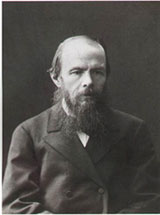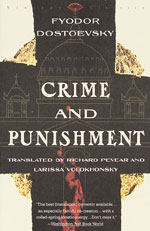The Lake House《触不到的恋人》(精讲之一)
|
影片对白
Mrs. Forster: The TV says it's global warming. The icebergs start melting, water covers the Earth. Thank God we won't live to see it. Kate: What's this? Mrs. Forster: Oh. That's nothing. It's one of your father's. Kate: Dostoyevsky? Mrs. Forster: Oh, yeah. It's about a guy who breaks the neck of a poor woman with an axe and, so far, keeps wandering around regretting it. Hmm. This is good. Kate: Oh, yeah? Mrs. Forster: Yeah. Really good. What are you thinking? Kate: Nothing. Mrs. Forster: When your father passed away, it was hard. It still is hard. Holding his books, I feel like he's with me somehow, knowing that he was once on the same pages reading the same words. Passenger: Oh, my God! Somebody call an ambulance! Kate: We need an ambulance at Daley Plaza. A man has been struck by a bus. Get an EMT crew here. Sir-- Policeman: Get out the street. Get on the sidewalk. On the sidewalk. Off the street. Driver: Sir? Policeman: Get on the sidewalk! Get on the sidewalk! Alex: I'd like to get the foundation on number 17 dug today. Mulhern: I know you're kind of new around here, kid. Alex: What? Mulhern: I can't get to 17 until at least next week. Alex: Come on, Mulhern. That's bullshit and you know it. Take Clemens and Rodriguez off of roofing. Jorge can run the backhoe they're not using on 14 and grab four or five of those other guys who are doing nothing on seven and 10. Paulie, Carlos, Frank, Danny, and what's his name, the tall guy? Mulhern: Rafael. Alex: Rafael. Let's go. Mulhern: Okay. Dr. Klyczynski: Hey. Kate: Hi. Dr. Klyczynski: I heard about Daley Plaza. EMT said you fought hard for the guy. Kate: Yeah, really knocked myself out. Dr. Klyczynski: Kate, I'm going to tell you what I tell every young doctor. Hopefully, you'll be the first to listen. On your day off, get as far away from this place as you can. Go someplace where you feel most like yourself. 妙语佳句, 活学活用 1. EMT 这是一个缩写,全拼是Emergency Medical Technician 急诊医士 2. knock oneself out 一个常用词组,在这里的意思是“使人筋疲力尽”。 3. hopefully 这个词在这里的意思很简单,就是一个表示希望的副词。但是这个单词在口语中也可以作为一个短句来使用,意思是 "希望如此"。口语中这样的短句很多,都可以由单个词来充当,比如: Dostoyevsky 陀思妥耶夫斯基
Dostoyevsky was born and raised in Moscow by Russian Orthodox parents. His father, a military surgeon and an alcoholic of harsh, despotic temperament, was brutally slain (1839) by his own serfs. This event haunted Dostoyevsky all his life and perhaps accounts in part for the preoccupation with murder and guilt in his writings. Dostoyevsky attended military engineering school in St. Petersburg and upon graduation entered government service as a draftsman. He soon abandoned this career for writing. Dostoyevsky's first published work, Poor Folk (1846), which brought him immediate critical and public recognition, reveals his characteristic compassion for the downtrodden. His second novel, The Double (1846), less favorably received, shows the profound insight into human character that dominates his later works. At about this time Dostoyevsky became involved with a group of radical utopians. The discovery of their illegal printing press brought about their arrest and condemnation. The prisoners were reprieved but were forced to take part in a pre-execution ceremony before the reprieve was read to them. Dostoyevsky was sentenced to four years at hard labor in a Siberian penal colony. During this harrowing period he suffered great physical and mental pain, including repeated attacks of epilepsy. The prison experience worked a profound change of heart in him. He abandoned his belief in the liberal, atheistic ideologies of Western Europe and turned wholeheartedly to religion and to the belief that Orthodox Russia was destined to be the spiritual leader of the world.
Financial troubles, combined with a turbulent love affair and a passion for roulette, led to a nightmarish period in Germany, partly described in the short novel The Gambler (1866). In 1864 his unhappy marriage ended with the death of his wife. The same year his financial problems increased when his brother died and Dostoyevsky assumed responsibility for the remaining family. In 1867 he married his young secretary, who gave him profound affection and understanding and greatly enriched his later years. Notes from the Underground (1864), a detailed study of neurotic suffering, began the greatest period of Dostoyevsky's literary career. Crime and Punishment, a brilliant portrait of sin, remorse, and redemption through sacrifice, followed in 1866. His next novel, The Idiot (1868), concerns a Christ figure, a meek, human epileptic whose effect on those around him is tragic.
A profound psychologist and philosopher, Dostoyevsky depicted with remarkable insight the depth and complexity of the human soul. His powerful though generally humorless narrative style, his understanding of the intricacies of character, especially the pathological conscience, and his amplification of sin and redemption made him a giant among novelists and, in the realm of ideas, a precursor of Freudian psychological analysis. Dostoyevsky died of a lung hemorrhage complicated by an attack of epilepsy. 思想火花
考考你 1. 请大家注意片段中标红的台词,非常有意义,有兴趣的读者不妨记下来。 Friends 1 《老友记》1(精讲十八) 考考你 参考答案 1. “你不想改变?”想和他在一起就用这样的烂理由! |

 Kate Forster: Sixty degrees on Valentine's Day. Can't be Chicago.
Kate Forster: Sixty degrees on Valentine's Day. Can't be Chicago.  Dostoyevsky, Feodor Mikhailovich, 1821-81, Russian novelist, one of the towering figures of world literature.
Dostoyevsky, Feodor Mikhailovich, 1821-81, Russian novelist, one of the towering figures of world literature.  After several years of obligatory military service in Siberia, he was allowed to return to St. Petersburg. With him was the widow he had married in Siberia and her son. Dostoyevsky joined his beloved brother Mikhail in editing the magazine Time, which serialized The Insulted and The Injured (1861-62) and the record of his experience in the penal colony, The House of the Dead (1862). He made several trips to Western Europe. One result was Winter Notes on Summer Impressions (1863), reflecting his severely anti-Western attitudes.
After several years of obligatory military service in Siberia, he was allowed to return to St. Petersburg. With him was the widow he had married in Siberia and her son. Dostoyevsky joined his beloved brother Mikhail in editing the magazine Time, which serialized The Insulted and The Injured (1861-62) and the record of his experience in the penal colony, The House of the Dead (1862). He made several trips to Western Europe. One result was Winter Notes on Summer Impressions (1863), reflecting his severely anti-Western attitudes.  The Possessed (1871-72) is a violent denunciation of the leftists and revolutionaries that Dostoyevsky had previously admired. In A Raw Youth (1875) he described decay within family relationships and the inability of science to deal with the primary need of human beings: a purpose for living beyond the mere struggle for sustenance. Both of these themes are central to the enormously complex plot and character development of his masterpiece, The Brothers Karamazov (1879-80), generally thought to be one of the finest novels ever written.
The Possessed (1871-72) is a violent denunciation of the leftists and revolutionaries that Dostoyevsky had previously admired. In A Raw Youth (1875) he described decay within family relationships and the inability of science to deal with the primary need of human beings: a purpose for living beyond the mere struggle for sustenance. Both of these themes are central to the enormously complex plot and character development of his masterpiece, The Brothers Karamazov (1879-80), generally thought to be one of the finest novels ever written.  The Lake House 是改编自数年前的韩国电影《触不到的恋人》,一个发生在时空交错下偶然邂逅的爱情故事。这一份偶然看似不可思议,却又那么真实,让观众愿意守候在湖畔,等待男女主角真正相遇的时刻。时空交错,并没有穿越古今。女生的现在,遇到了男生的过去。这之间只是相差了两年,短短的800多个日子。而交错点就是在收藏着两人各自回忆的一间湖边小屋,和那神奇的信箱。东方含蓄,内敛的情感被放置在西方风景秀丽的湖畔,依然可以动人心弦。我们的六个片段从Valentine's Day的情节开始,到似乎完全一样的Valentine's Day的场景结束,一方面和电影的浪漫主题一致,另一方面也有助于还没有完整看这部影片的观众或读者更容易理解影片中的时空交错。
The Lake House 是改编自数年前的韩国电影《触不到的恋人》,一个发生在时空交错下偶然邂逅的爱情故事。这一份偶然看似不可思议,却又那么真实,让观众愿意守候在湖畔,等待男女主角真正相遇的时刻。时空交错,并没有穿越古今。女生的现在,遇到了男生的过去。这之间只是相差了两年,短短的800多个日子。而交错点就是在收藏着两人各自回忆的一间湖边小屋,和那神奇的信箱。东方含蓄,内敛的情感被放置在西方风景秀丽的湖畔,依然可以动人心弦。我们的六个片段从Valentine's Day的情节开始,到似乎完全一样的Valentine's Day的场景结束,一方面和电影的浪漫主题一致,另一方面也有助于还没有完整看这部影片的观众或读者更容易理解影片中的时空交错。 






